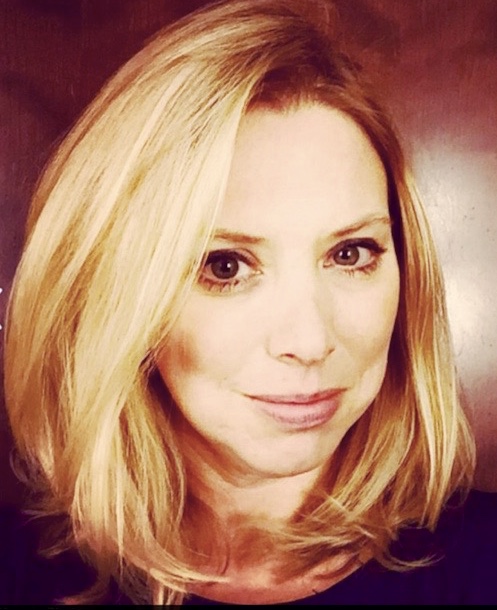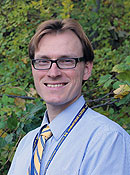“More than 20 percent of the American population lives with a disability, but as few as 2 percent of practicing physicians do,” stated a New York Times piece from July 11, 2017. This disparity signals a fundamental incongruity of experiences--between the vast swathe patients who have or will experience a disability and the physicians who treat them. The New York Times and Slate have both recently published articles that highlight the underrepresentation of physicians with disabilities and both publications feature work from department of family medicine disability health researchers Michael M. McKee, M.D., M.P.H., Lisa M. Meeks, Ph.D., Michael D. Fetters, M.D., M.P.H., M.A., and Philip Zazove, M.D..
The lack of physicians with disabilities was traced back to critical barriers in medical school admissions. In a paper published last year in Academic Medicine, Zazove and Fetters looked at “technical standards” from 173 medical school admissions policies across the United States. Programs can set standards, defining cognitive and physical procedures and abilities required of admitted medical students. Their analysis found that technical standards lacked basic understanding of disabilities and accommodations, with most lacking specifications for accommodating students with disabilities--despite the legal guidelines of the 1973 Rehabilitation Act and the Americans with Disabilities Act (ADA) of 1990. The standards reflect outdated and insufficient knowledge of the diverse abilities and accommodating intermediates (e.g. sign language interpreters or technologies) that enable individuals with disabilities to thrive as health professionals. The paper identifies a concrete and critical weakness in the disability-diversity pipeline problem in the field of medicine.
According to Slate, the University of Michigan Medical School was prompted to revise their technical standards for admissions, in-part, as a response to the growing body of research conducted by Zazove, McKee, and other disability health researchers in the department of family medicine, like health economist and disparities researcher Elham Mahmoudi, Ph.D. and reproductive health researcher and family physician Justine P. Wu, M.D., M.P.H. Slate interviewed third-year U-M medical student Molly Fausone, who co-wrote a paper with Zazove and McKee in the AMA Journal of Ethics, in their October 2016 issue on Health Professionals with Disabilities (read more). The paper delves deeper into the ethics of restrictive “organic” technical standards in medical school admissions.

Lisa Meeks, Ph.D., clinical lecturer and disability inclusion expert, was quoted in the Slate piece, on her experiences consulting with medical school administrations who wish to strengthen their disability and admissions policies to accommodate diversely abled students. She notes that exclusionary policies “is less often a matter of prejudice than it is of medical schools not knowing what they don’t know.” There is a need for to educate medical educators and administrators on the the experiences of individuals with disabilities and the accommodations that are available to them. Before joining the department of family medicine, Meeks served as academic faculty and director of Medical Student Disability Services at the University of California, San Francisco.
There is consensus among the Times and Slate that training more disabled doctors is the first step in closing health disparities for people with disabilities. As supporting evidence, Slate cites a 2013 national survey of deaf and hard-of-hearing (DHoH) doctors and medical trainees, conducted by Zazove. The survey found that “over 20% of trainees anticipated working with DHoH patients, whereas physicians on average spent 10% of their time with DHoH patients.” As with studies showing a correlation between racial and ethnic diversity among physicians and lowered barriers for minority patients, Zazove’s study points to a hopeful connection between greater professional diversity and the rise in quality care for individuals with disabilities.
Find the New York Times and Slate articles and the cited research:
Moreland CJ, Latimore D, Sen A, Arato N, Zazove P. Deafness among physicians and trainees: a national survey. Acad Med. 2013 Feb;88(2):224-32. doi: 10.1097/ACM.0b013e31827c0d60
Zazove P, Case B, Moreland C, Plegue MA, Hoekstra A, Ouellette A, Sen A, Fetters MD. U.S. Medical Schools' Compliance With the Americans With Disabilities Act: Findings From a National Study. Acad Med. 2016 Jul;91(7):979-86. doi: 10.1097/ACM.0000000000001087
McKee MM, Case B, Fausone M, Zazove P, Ouellette A, Fetters MD. Medical Schools' Willingness to Accommodate Medical Students with Sensory and Physical Disabilities: Ethical Foundations of a Functional Challenge to "Organic" Technical Standards. AMA Journal of Ethics. 2016; 18(10): 993-1002. DOI: 10.1001/journalofethics.2016.18.10.medu1-1610




